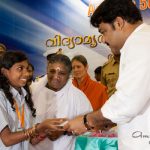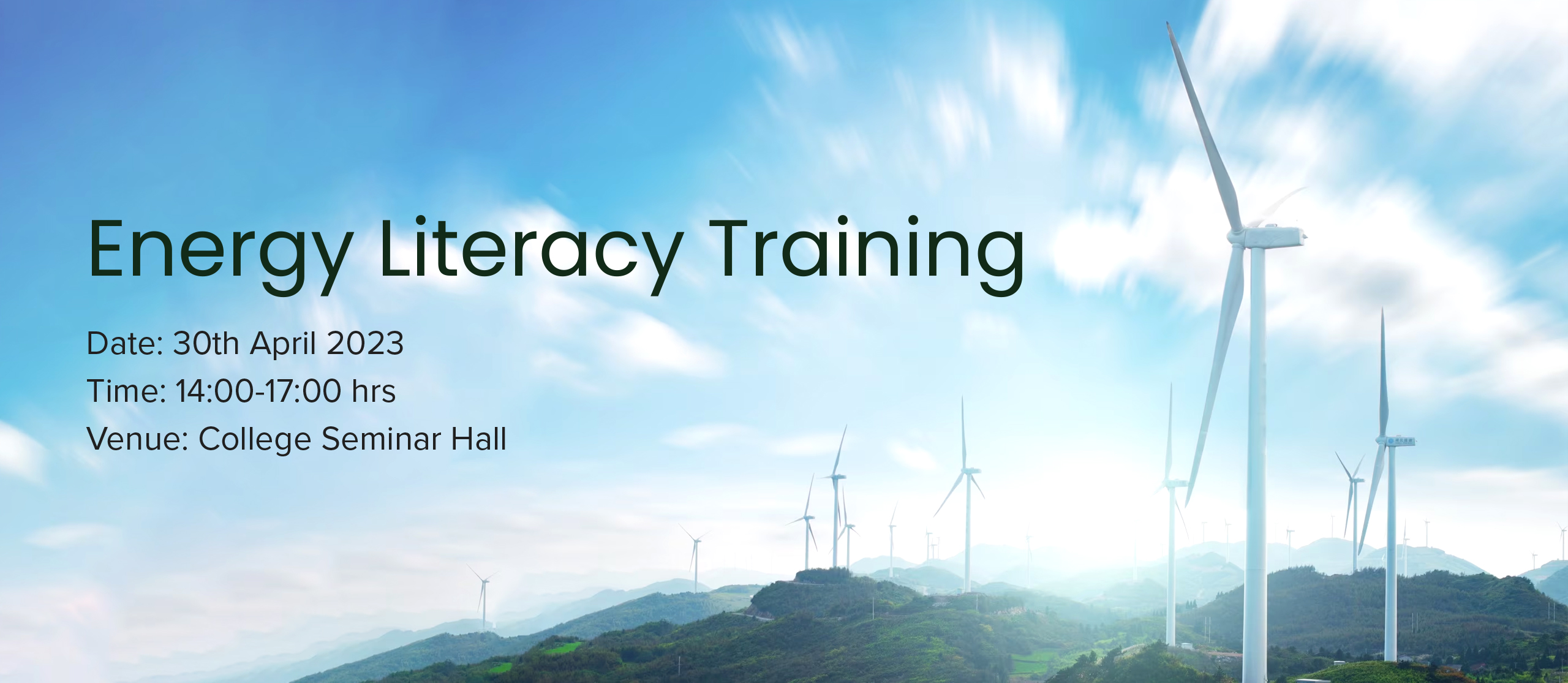Udhaharans

AYUDH – Global Youth Wing






Energy Literacy Training
Date: 30th April 2023
Time: 14:00-17:00 hrs
Venue: College Seminar Hall

Modern human life is driven by energy. Over 80% of the world’s energy requirements are fulfilled through use of carbon-based fuels like coal, oil and gas. These fuels are made out of carbon and use in the form of petrol, diesel, LPG, cement, materials, products results in CO2 and greenhouse gas emissions. These greenhouse gases are causing heating of the planet, which has changed the climate. The rate of global warming (climate change) and associated events like rising sea levels, heatwaves, cyclones, floods, droughts, forest fires are ever-increasing, resulting in ever-increasing troubles for humans. According to scientists, we must limit global warming to less than 1.5℃ mark ideally or maximum of 2℃. Beyond this climate change will become irreversible, and corrective actions will be ineffective. As per the world climate clock, only 6 to 7 years are left before the global temperature touches the 1.5℃ mark.
Every individual is contributing to climate change therefore every individual must take part in corrective actions. The efforts for mitigating climate change cannot be restricted to just governments or organizations. Each individual should become fully aware of the dangers of climate change and then start taking actions immediately. Energy is the main culprit of climate change because more than 80% that we use comes from coal, oil and gas. It is important to know the basics about energy usage and its negative impact on the environment. Therefore Energy Literacy is the first step towards climate correction.
In this context, a training session on Energy Literacy will be conducted at the Sustainability & Resilience Communities Conclave in collaboration with Energy Swaraj Foundation on 29th and 30th April 2023 at Gangtok, Sikkim. Anyone above the age of 12 can attend. High school and college students, university faculty and school teachers, Govt. officials, members of CSO’s, professionals working in private companies.
Energy Literacy Training includes the understanding of energy generation, its consumption, its use, misuse and inefficient use, opportunities to conserve energy and generate clean energy. The training is divided into four sections or four “E”s, as listed below:
Section – 1: Establishing the concept of a given module
Section – 2: Example to clarify the module concept
Section – 3: Exercise for strengthening the grasping of concept
Section – 4: Examination to check the understanding of the concept
Energy Literacy Training would help individuals as well as institutions to achieve Sustainable Development Goals (SDGs) number 7, 12, 13 and 17.
Certificate for the participants
- UNESCO Chair on Experiential Learning for Sustainable Innovation & Development
- Government of Sikkim
- Sikkim State Disaster Management Authority (SSDMA)
- Energy Swaraj Foundation
